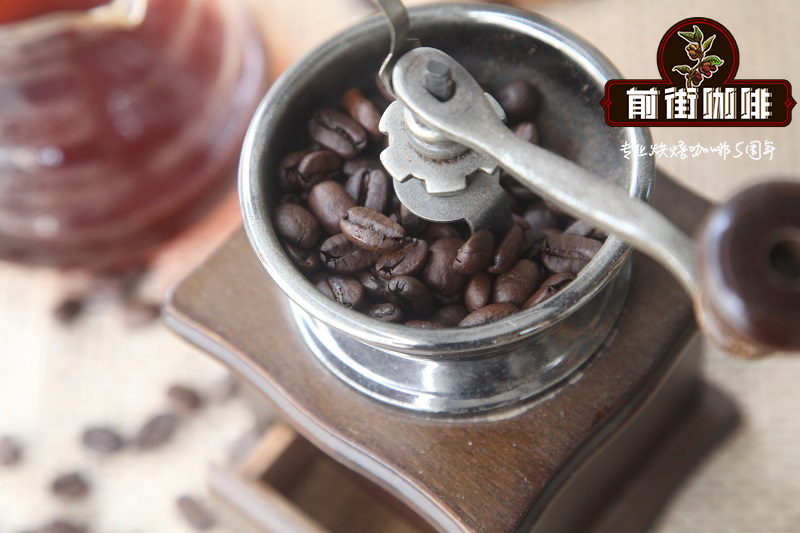Unfair coffee: do you know how much coffee beans usually cost? how much is a pack of coffee?

Professional coffee knowledge exchange more coffee bean information please follow the coffee workshop (Wechat official account cafe_style)
Unfair Coffee (Black Gold) records the story of coffee cooperative managers in Ethiopia who worked hard to enable Ethiopian coffee farmers who were the first to grow coffee and the best quality in the world to have basic needs, buying coffee directly from coffee farmers' cooperatives and reducing the consumption process by 60%, in order to increase the income of coffee farmers and help coffee farmers out of poverty. At the same time, it also accused the world's four largest coffee multinationals of controlling the coffee market, as well as the exploitation of coffee farmers by the left hand of the western world, making it impossible for them to make a living, while the right hand offered emergency relief. The whole film finally sank into the water with USA WHEAT's American aid wheat bag, showing that the taste of wheat is quite illusory, as the third World called for "fair trade is better than aid", while the faint call of Ethiopian coffee farmers: asking God to raise the price of coffee is still an illusion in the water.
With a population of nearly 74 million, Ethiopia is the second most populous country in Africa and is expected to make it into the top 10 in the future. The history of coffee cultivation began in 900 AD, and there are now 1.2 million coffee farmers; 15 million people depend on coffee for a living, and 67% of their export income is coffee. 、
How much is Ethiopian coffee per jin?
Although 1/5 of the people in Ethiopia depend on coffee for a living, the price of coffee is not determined by coffee farmers. Coffee from the origin is sometimes sold for 0.75 yuan per kilogram, and if it is good, it can only sell for 4 or 5 yuan (US $0.12 per kilogram of coffee beans), that is, US $0.60 per kilogram of coffee beans, about 5 yuan. A kilogram of coffee beans brewed 80 cups of coffee can sell for $230, while coffee workers earn less than $1 a day.
The world drinks 2 billion cups of coffee a day, while Ethiopian coffee farmers are barefoot and hungry, up to 7 million, some of them medically fed. "unfair coffee" is tantamount to avenging barefoot coffee farmers, because since the termination of the coffee agreement in 1989, the second most active market commodity in the world is controlled by the futures markets of New York and London, and the market price of coffee has fallen to its lowest level in 30 years. Some commentators also believe that the rise of Vietnamese coffee has had an impact on the price of Ethiopian coffee.
Unfairness in the coffee world is an old issue of exploitation among agricultural products, but in the coffee world, because of the advocacy of fair trade, it reminds well-dressed Western consumers not to forget that every grain is a hard-working coffee farmer.
Four coffee multinationals refused to respond to the allegations of "unfair Coffee"; in Taiwan, Starbucks Coffee, which is highly recognized, was once considered to sell "unfair Fair Coffee".
Unfair Coffee takes the WTO ministerial meeting in Cancun, Mexico, as a scene to illustrate the world of unfair trade. Western countries subsidize nearly $30 billion of agricultural products each year, keeping agricultural prices high and farmers' economic income at a certain level. Compared with Western subsidy policies, African countries are unable to subsidize because of treasury poverty, which not only results in low prices of agricultural products, but also because low-priced agricultural products give multinational corporations more opportunities to exploit. The more coffee you drink in the Western world, the poorer coffee farmers in Africa are.
In order to let Taiwan consumers drink fair trade coffee, in addition to Starbucks unfair fair coffee, there are also some independent fair coffee stores for consumers to choose from, hoping to build a real fair trade order through consumers' cognition. May 10 is Fair Trade Day. When you drink coffee, do you wonder why coffee farmers in Africa do not increase their income because of the increase in the number of coffee drinkers in the world, but become poorer, or even cut down coffee trees and grow other crops? Compared with the coffee craze in Taiwan, coffee farmers in Ethiopia should beat their breasts and lament that they are not as good as rookies.
Important Notice :
前街咖啡 FrontStreet Coffee has moved to new addredd:
FrontStreet Coffee Address: 315,Donghua East Road,GuangZhou
Tel:020 38364473
- Prev

How much is the price of coffee fruit in 2018? how much is a jin of Yunnan coffee?
Professional coffee knowledge exchange more coffee bean information please follow the coffee workshop (Wechat official account cafe_style) how much is Yunnan coffee? Whether it is a chain of coffee brands or independent cafes, any cup of espresso sells for more than 30 yuan. For popular consumer drinks, this price undoubtedly belongs to the medium-to-high price. So as one of the main ingredients of coffee
- Next

How much is the original coffee powder? how much does a jin of Starbucks coffee cost to be accepted?
Professional coffee knowledge exchange more coffee bean information Please pay attention to the coffee workshop (Wechat official account cafe_style) although do not drink Starbucks, but the market mainstream pricing is maintained with Starbucks. Coffee is a drink that I consume every day, and my expectation for it is to make it affordable for me as a barista to drink 2 cups a day. In this way, I will not be mainstream.
Related
- Detailed explanation of Jadeite planting Land in Panamanian Jadeite Manor introduction to the grading system of Jadeite competitive bidding, Red bid, Green bid and Rose Summer
- Story of Coffee planting in Brenka region of Costa Rica Stonehenge Manor anaerobic heavy honey treatment of flavor mouth
- What's on the barrel of Blue Mountain Coffee beans?
- Can American coffee also pull flowers? How to use hot American style to pull out a good-looking pattern?
- Can you make a cold extract with coffee beans? What is the right proportion for cold-extracted coffee formula?
- Indonesian PWN Gold Mandrine Coffee Origin Features Flavor How to Chong? Mandolin coffee is American.
- A brief introduction to the flavor characteristics of Brazilian yellow bourbon coffee beans
- What is the effect of different water quality on the flavor of cold-extracted coffee? What kind of water is best for brewing coffee?
- Why do you think of Rose Summer whenever you mention Panamanian coffee?
- Introduction to the characteristics of authentic blue mountain coffee bean producing areas? What is the CIB Coffee Authority in Jamaica?

